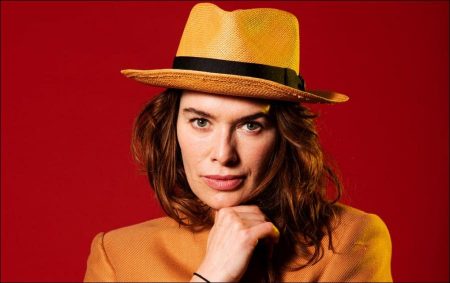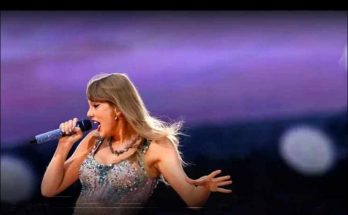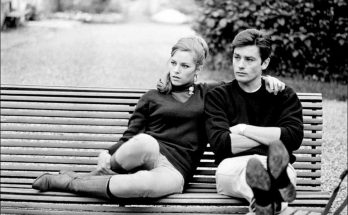Lena Headey has not moved since the end of Game of Thrones. There is his short film, his work with the refugees – and there is always another tattoo.
LEna Headey has been an actress for three years, but this experience does not dispel doubt about her abilities. Near University of Game of Thrones “No, it makes me doubt myself more,” she says, when we find ourselves in an apartment suite at Soho House in Berlin.
Headey, who speaks of a sort of metropolitan RP embellished with a Yorkshire motto, glottal cockney stops and Californian grammar, swears generously with enthusiasm. With his eminent tattoos and his terribly earthy attitude, it’s fair to say that it will never be any royal air of Cersei.
It is not a game of sympathy or approval either. What it means is that there is no way of setting goals to determine what has been said that a performance is “good”, and that people are being acclaimed for a variety of reasons, including many are not sincere.
“You have to push back the voice that says, “You’re a fucking sea, man,” she said with a laugh, “which is really hard on some days.”
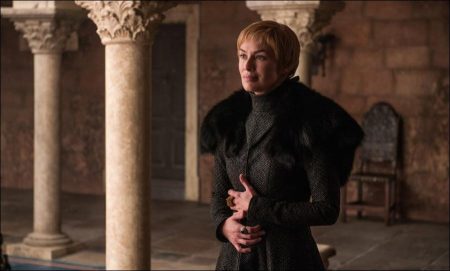
In the New Yorker, Clive James described Headey’s Cersei as “a beautiful expression of arbitrary terror combining a beneficent grace and an unfailing resolve in the steps to be taken to become a fancy man.”
He wasn’t lying. Watching her in Game of Thrones – and she was never less than watchable – was like a study in tyranny as a seductive art. There was something magnetically human about her inhumanity. You were drawn to her devious charms even as you recoiled from her brutal deeds.
At its best the show managed to transcend the blushing fact that it contained fire-breathing dragons and armies of demented zombies. And it was most often at its best when Headey was on screen and radiating cold calculation and ruthless intrigue.
By common agreement it was at its worst in the final series, which managed to be both torturously slow and narratively rushed. Aside from the clunky plotting, the problem was that many of the best characters, played by actors of the calibre of Diana Rigg, Charles Dance, Jonathan Pryce, Stephen Dillane and Michelle Fairley, had been killed off, exposing the limitations of some of the actors in the leading roles, which up until then had been more symbolic than dramatic. But as the denouement approached, the leads were called upon to drive the drama and, like the script, were not quite up to the job. When I outline this theory, Headey is careful not to take the bait.
“No, listen,” she said, “I have a look and I have my favorite characters, and I have some of my own blame, but David [Benioff] and Dan [Weiss] for the time being.”
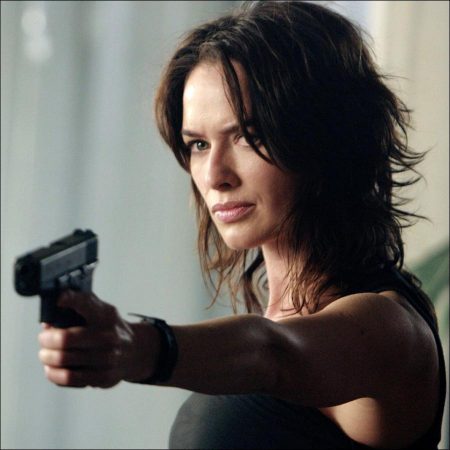
Benioff and Weiss are the two lead authors who adapted George RR Martin’s books and directed one of the most popular TV series in the world. What will she say when she has this drink? “I will say that I wanted a better death.”
In the penultimate episode, Cersei was crushed by the masonry fall with his brother-in-love, Jaime (Nikolaj Coster-Waldau). It was a disappointing end, to put it politely.
“Obviously, you dream of your death,” she says. “You could participate in any way on this show, so I was a little empty, but I just think they would not have liked everyone, no matter what they did, I thought there would be a big descent after the climb. ”
Following the anticlimactic finale, reports of actors experiencing difficulties. Kit Harington, who plays the role of Jon Snow, issued a statement confirming that he had participated in a luxury detox in Connecticut. Headey did not suffer from such post-dramatic stress disorder.
She is still in contact with many of what she calls the “Thrones”. “We all belong to a giant WhatsApp group that fills up every day,” she says. “It’s hilarious, you can tell who drank alcohol on that one.”
But as for a comedown, it’s not happened. “It was amazing,” she says, with cheery pragmatism. “And things end and you move on.”
Given that the show turned Headey from a low-profile supporting actor into a global star, it’s rather a large nine-year commitment to move on from. But she’s now 45 and, she says, too long in the tooth to get caught up in the emotional turmoil of jobs finishing.
“When I was much younger I would weep every time I ended a job,” she says, “and I would take everybody’s phone number, every single person I’d ever said hello to, because it had been such an intense experience. And then you get older and you have more of those experiences and they become less intense. I think the guys who grew up on that show, they probably formed really deep friendships that will carry them through. But most of us have our own kids. If kids don’t balance you, then nothing does.”
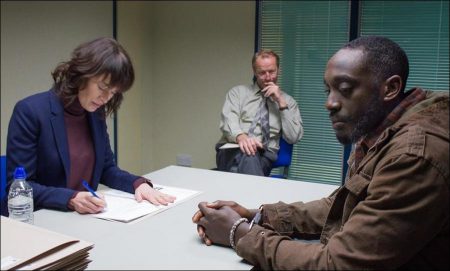
Headey has two children, a nine-year-old boy from a marriage that ended in 2011 and a three-year-old girl with film-maker Dan Cadan, from whom she is now separated. It’s said that many years ago she had an affair with the actor Jerome Flynn that either ended badly or had an unfortunate reprise or both.
That’s hardly an unusual circumstance in the film business, but in their case they were both cast in Game of Thrones and, according to rumours coming from the set, such was the enmity that they had to be kept apart. During the course of eight seasons their characters were only brought together once, very briefly, and Headey’s Cersei didn’t so much as glance at Flynn’s Bronn.
She now lives in East Dulwich in south London, after a short stint in her native Yorkshire, following 12 years in Los Angeles.
Having made her debut as a 17-year-old in the film Waterland, Headey carved out a busy but not particularly notable career in the UK and then America. With her striking looks, she tended to be cast in thrillers and horror films that by and large didn’t trouble the box-office charts.
Perhaps her real breakthrough came in television, playing Sarah Connor in Terminator: The Sarah Connor Chronicles. The short-lived series made little impact here, but her performance as a smart, tough woman did not go unnoticed in Hollywood. A couple of years later Peter Dinklage (Cersei’s brother, Tyrion Lannister in Game of Thrones) suggested that Headey should read for a part in a script he’d been given that mixed the fantasy genre with ribald characterisations and baroque power struggles.
“We were doing this little indie in LA called Pete Smalls is Dead,” she recalls. “And we were all sharing like one square of a hot caravan. Pete said you’ve got to read this. I love Pete. I think he’s wonderful and so I was like: ‘Oh, if Pete’s reading it, it must be fucking great.’ That was my measure.”
Used to projects with brief shelf-lives, she thought she’d go to Scotland and “have a laugh for a month”. A decade later she was earning, according to the Hollywood Reporter, $1m per episode for the eighth and final series of Game of Thrones. That kind of success and that kind of money is life-changing. In terms of her career, it means she’s now sent scripts in which she is actively interested. Doors are opened, meetings are made, and everywhere she can expect the star treatment. But all of that comes with greatly increased fame, scrutiny and public recognition, none of which she much enjoys.
“Sometimes when you’re on the tube and suddenly someone nudges somebody else,” she says. “I panic in those situations. I go, fuck, I don’t know how to handle that. Or someone chases you out of a tube – that’s the weirdest thing. Those moments I hate.”
You still travel by tube? I ask with surprise.
Apparently she does. The quid pro quo for the fame – aside from the money – is, that it “gives you a voice”.
“So using it in ways that are helpful and supportive to others – it sounds naff but it’s genuine – that’s the balance for me,” she says.
Recently she’s been using her voice to bring attention to the plight of migrants. Like many people she was deeply upset by the photograph of Alan Kurdi, the young Syrian boy found dead on a Greek beach, that was taken in September 2015. She wanted to do something and got involved with the International Rescue Committee, visited migrant centres in Lesbos, where she befriended a Syrian family of refugees now relocated in northern Germany.
It’s a concern that also led to her appearing in a low-budget British feature film called The Flood, which was made by three people who had worked as volunteers at the Calais “jungle” – director Anthony Woodley, writer Helen Kingston, and producer Luke Healy.
The film-makers wanted to open up a dialogue around the refugee/migrant debate that acknowledged the complexity and emotions on both sides of the issue. Headey plays a rather cold and officious civil servant assessing asylum claims at a refugee centre in England. Her character is also going through a difficult divorce, separation from her child, and is drinking too much.
It’s an understated performance, delivered in flat Yorkshire tones, a portrait of an emotionally vulnerable woman hiding under a harsh exterior. After rejecting one Eritrean claimant, she has second thoughts and goes against her number-crunching boss (Iain Glen, also of Game of Thrones) to come to the refugee’s aid. It’s about as far from high production values and every other Game of Thrones value as you could get.
Headey was attracted to the change in scale. “I sort of grew up in the small British film industry,” she says, “back when films were made for no money by people who felt passionate about their projects, and were shot in a really small space of time. And I missed that way of film-making.”
The film was actually made three years ago but has been sitting around waiting for a release spot. The delay, she says, was because another film about refugees had already been released, so the film industry, in her scathing phrase, had “fulfilled its quota” on the issue.
“It’s not a cool thing to talk about,” she says of the refugee crisis. “It’s kind of ugly. And sort of unfathomable. But when are we going to realise we need to find something that works?”
She cites reports of the appalling conditions in which migrants are held in Libyan camps that are funded by British taxpayers as an example of a system that isn’t working. At the same time she acknowledges that it’s a complex subject that can’t easily be reduced to simple answers, noting, as the film doesn’t, that gangsters and criminals conceal themselves among and exploit genuine refugees.
Nonetheless she thinks Germany has risen far more impressively to the challenge of the refugee crisis than the UK, which she says has neglected its moral and international obligations to unaccompanied minors. She has witnessed on a previous visit how differently things are done in Berlin. This time round she’s in the German capital making an action film called – Nigel Farage beware! – Gunpowder Milkshake. It involves a band of female assassins and features Angela Bassett.
Headey says she is enjoying the fun of physical exertion, but while she’s done plenty of action and horror films, they don’t reflect her own taste in film-making. For many years she’s been nurturing an ambition to move to the other side of the camera. She’s carefully studied how directors construct scenes and advise actors. She has developed strong ideas about what works and what doesn’t, and says she’s always amazed when actors don’t want to direct.
Now she has made the transition with a short film she directed that she’s currently entering into the festival circuit. Entitled The Trap, it’s what she calls an “intimate, emotionally driven piece” that she wrote nine years ago in the course of a single day. It’s taken this long to bring it to fruition. Even by the standards of the notoriously slow-moving film industry, that seems like a glacial progression.
She doesn’t appear at all bothered by the lengthy development period. What matters to her is that she finally made it. Unlike with acting, she is fully confident of her abilities as a film-maker. Of the experience of directing, she says: “I’ve never, ever in my life felt more content and in my place. Ever.”
The Trap is a remarkably accomplished piece of work that features some gripping naturalistic performances from several actors, including the wonderful Michelle Fairley, yet another Game of Thrones colleague.
The writing is crisp, spare and shot through with bristling repressed emotions. Headey’s great cinematic hero, her “north star of directing”, is Shane Meadows, whose extraordinary four-part TV drama The Virtues recently concluded, having explored emotional depths that few drama writers would even consider attempting to reach.
“He pulls you in and you’re kind of giggling and then you realise that you’re part of something really dark,” she says approvingly of Meadows.
Without giving anything away about the plot, it would be fair to say that, though only 30 minutes long, The Trap perfectly fulfils that brief. Amazingly, after the nine-year hiatus, the shooting took only four days – almost as quick as the writing. “It was a small crew moving at pace.”
She says her philosophy as a film-maker involves creating an environment in which everyone is heard and everyone loves what they’re doing. That sounds rather idealistic but, as she says, some directors behave as if they hate actors, treating them as a necessary evil rather than active collaborators.
The irony is that now she is at the pinnacle of her acting powers, and her power to make acting choices, what she most wants to do is write and direct. That’s not to say she’s going to quit acting, but her plan is to be more selective in her work.
In the meantime, she can turn her thoughts to her other great creative impulse: her next tattoo. She has at least 13 visible tattoos, including images of flowers, butterflies, birds, stars, hearts and a Ganesha elephant godhead. As she tells me, she’s not interested in expensive handbags, but she can’t resist the allure of another inking. Every six months, she says, she gets a “jones” for a new tattoo. “It resets me,” she explains. “It’s like a ritual.”
She doesn’t know what the next one will be yet, but what usually happens is that she’ll have the seed of an idea and then she’ll start to obsess about it until she can find someone to do it. Her girlfriends often tell her that she’s gone too far, but she’s not put off by that.
What troubles her is when her tattoos are covered up for filming. “I don’t like it,” she says. “It’s weird, I don’t feel whole.”
Only her most devoted fans are likely to notice her next tattoo, but her directorial debut is well worth catching. Forget the Iron Throne. The seat of her true destiny may well turn out to be the director’s chair.
…like you, are reading and supporting The Guardian’s independent, investigative journalism than ever before. And unlike many new organisations, we have chosen an approach that allows us to keep our journalism accessible to all, regardless of where they live or what they can afford. But we need your ongoing support to keep working as we do.
The Guardian will engage with the most critical issues of our time – from the escalating climate catastrophe to widespread inequality to the influence of big tech on our lives. At a time when factual information is a necessity, we believe that each of us, around the world, deserves access to accurate reporting with integrity at its heart.
Views: 547
